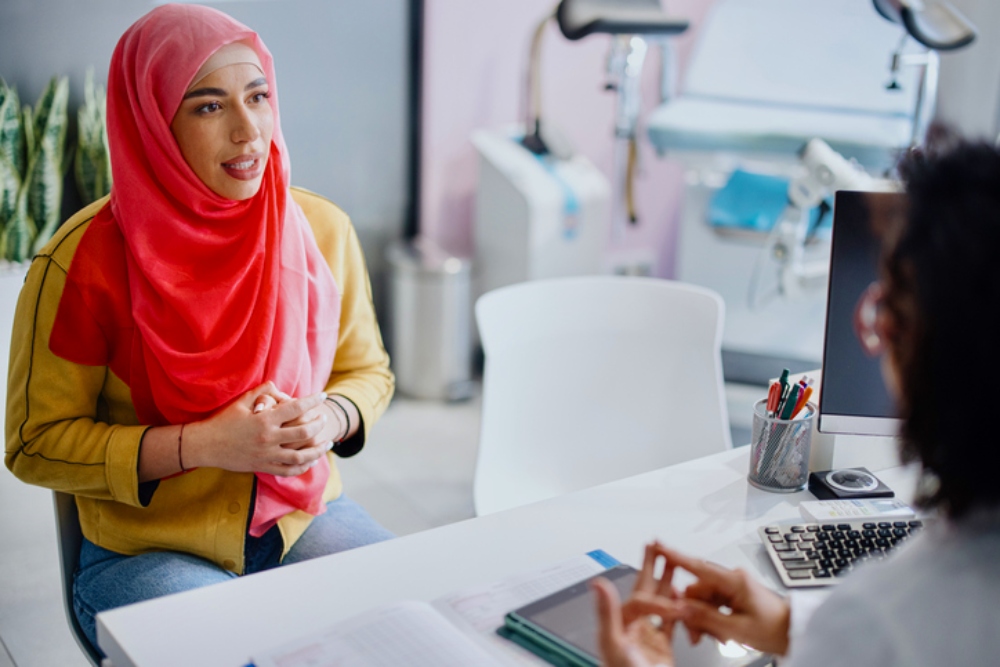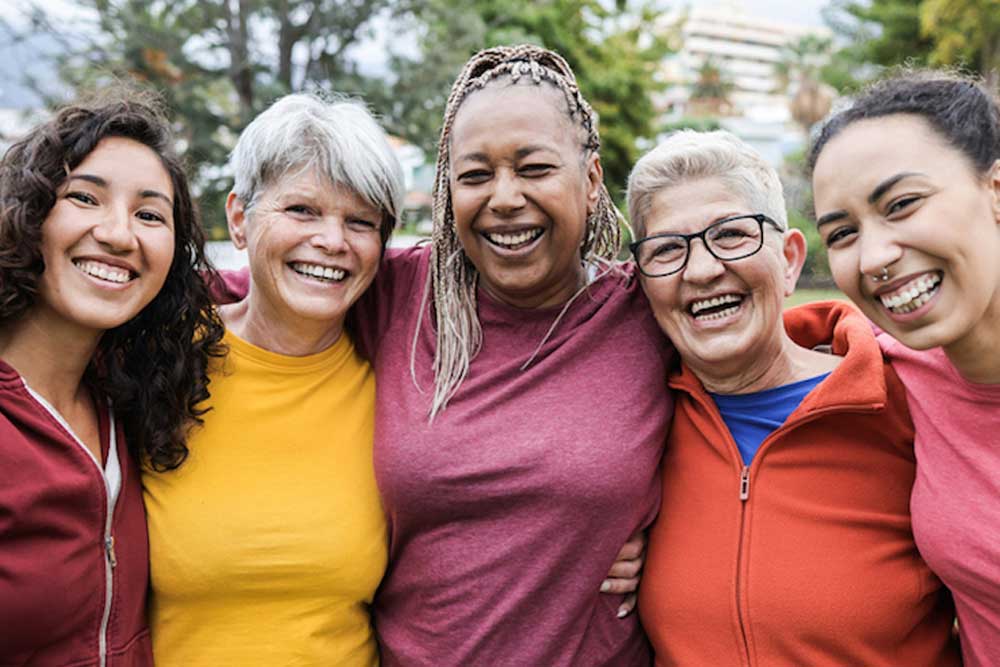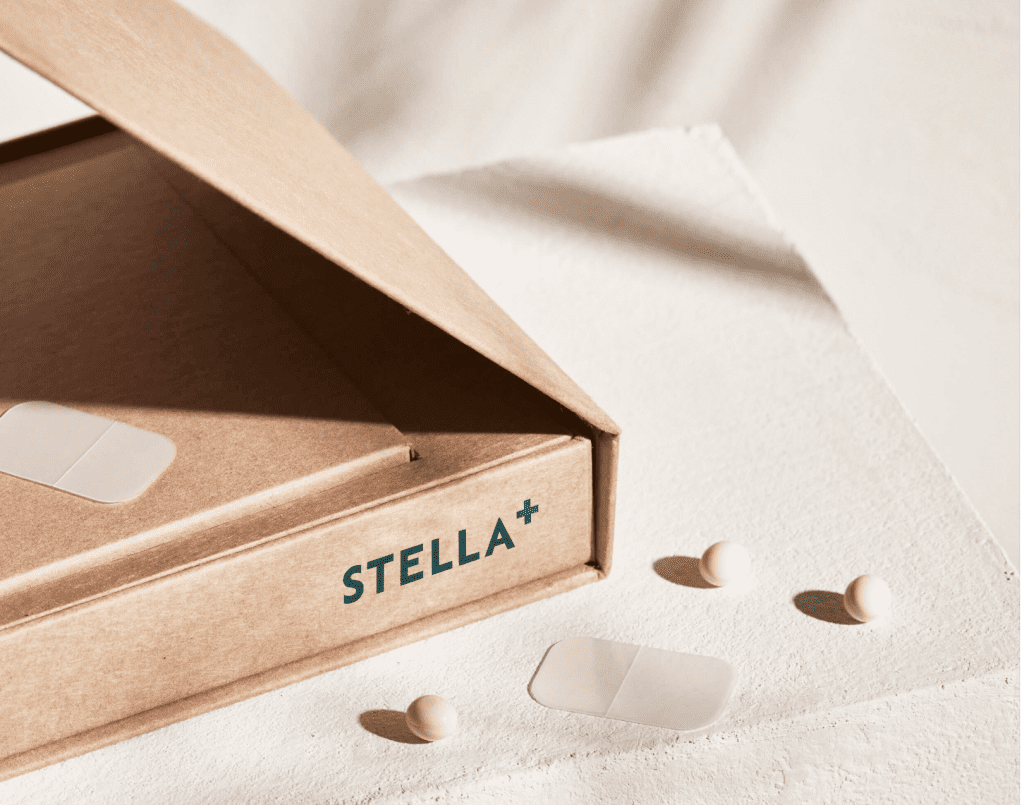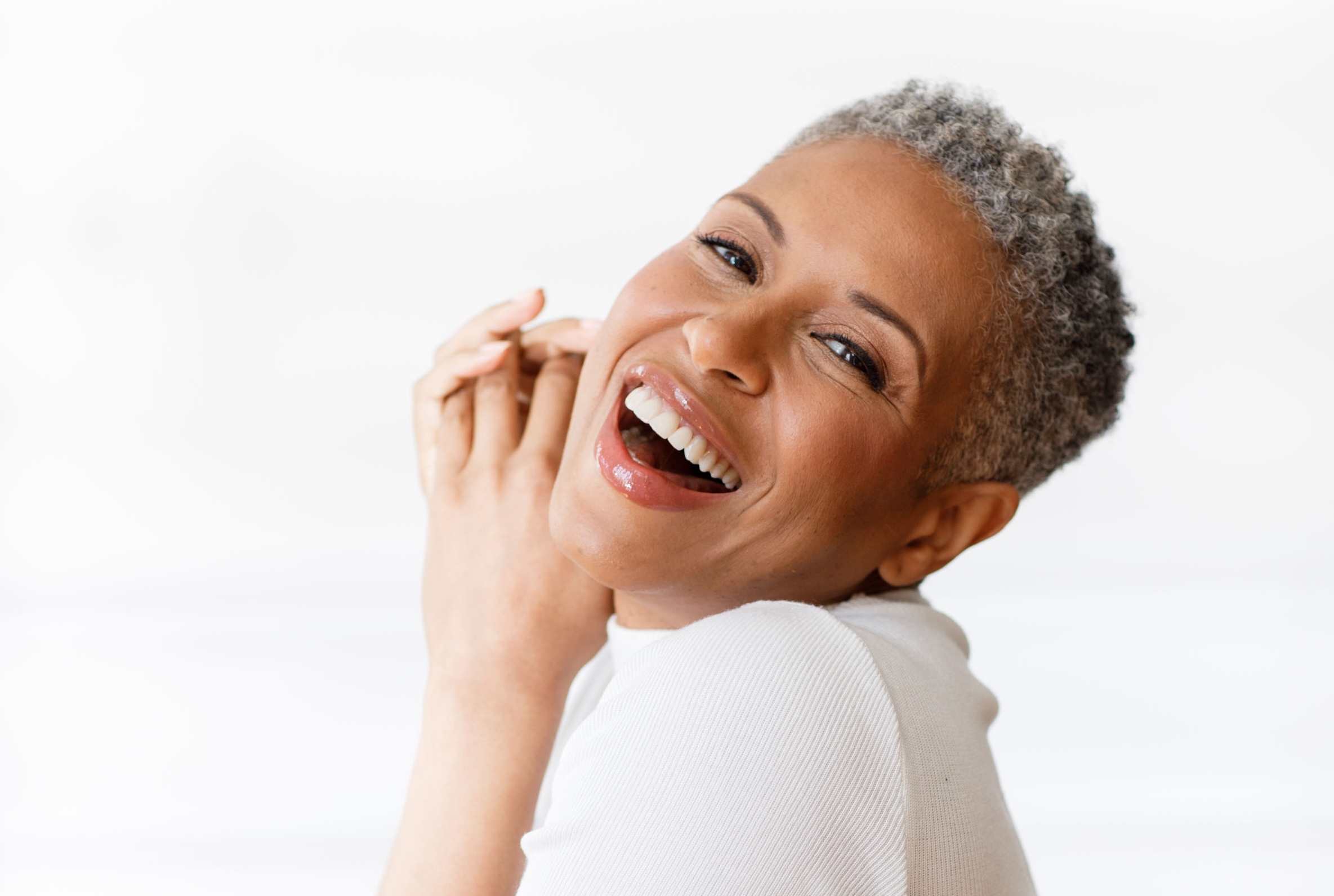SORE BREASTS DEFINITION
Sore breasts at menopause can feel achy, tender, painful or overly sensitive. The exact feeling can be very different for everyone. This can be constant or come and go and can affect one or both breasts.
The medical term for breast pain is mastalgia. Breast pain can be cyclical (related to your menstrual cycle) or noncyclical (not related to your cycle). Cyclical breast pain is more common among those still having periods, whereas noncyclical breast pain is more common after menopause.
Start your free online menopause assessment to see if HRT is right for you

HOW LIKELY ARE SORE BREASTS DURING MENOPAUSE?
Very likely. Many find that they have breast pain during and after menopause.
Even before menopause, sore breasts are very common. Hormonal changes associated with the menstrual cycle are responsible, and many find that their breasts feel tender just before their period (cyclical mastalgia). Around 70% consult a doctor due to breast pain at some point in their lives.
If you have cyclical mastalgia, your symptoms may worsen during perimenopause before improving after menopause.
Others might notice new or different breast pain at this time. Noncyclical breast pain is more common after menopause, but some women have cyclical pain even after their periods have stopped.
Read more about the stages of menopause
TIPS TO HELP WITH SORE BREASTS DURING MENOPAUSE
Check in with your doctor
Many different things can cause breast pain and menopause is only one of them. Other possible culprits include cysts, strained muscles and costochondritis (inflammation of the cartilage that joins your ribs to your breastbone). Your doctor will be able to help in finding out what is causing your pain and how best to treat it.
Be breast aware
Although breast pain is not usually a sign of breast cancer, it is still important to get checked out. Your doctor may want to examine you or refer you on for further tests. For more information, read the NHS guide on checking your breasts.
Think about HRT
If you are taking HRT, it could be the culprit! Sore breasts are a key side effect of both oestrogen and progesterone. It is common for these to settle within a few weeks of starting HRT, but a change to your prescription could help if they last longer.
Wear a good bra
This is especially important if you have larger breasts. Good support helps to minimise strain on your breast and helps to prevent damage to Cooper’s ligaments, which give your breast its shape. Getting fitted properly can make all the difference – many retailers now offer this service in store free of charge.
Use painkillers if needed
If you are struggling with discomfort, your doctor may recommend using simple painkillers to help.
CAN HORMONE REPLACEMENT THERAPY (HRT) HELP?
Possibly. HRT can actually cause breast tenderness for many – it is a common side effect of both oestrogen and progesterone, and generally settles after a few months.
Interestingly, those who had sore breasts prior to starting HRT may actually find that their symptoms improve.
Because of this seeming contradiction, HRT is not often prescribed solely for sore breasts. Your own doctor will be able to advise on the best treatment for you.
HRT can also effectively treat many other symptoms associated with menopause, such as hot flushes, mood changes, and sleep disturbance, among others. Read more on the risks and benefits of HRT here.
WHAT IF MY HRT IS CAUSING SORE BREASTS?
If your symptoms are not settling down after a few months, speak to your doctor. They may recommend switching to a lower dose or different type of oestrogen, or to a transdermal form of HRT (patch, gel or spray). Both of these may help to reduce your symptoms. Find out more about the side effects of HRT.
ARE SORE BREASTS A SIGN OF CANCER?
While breast pain is extremely common, it can still cause you to worry about breast cancer.
The good news is that sore breasts alone are not generally thought to be a sign of cancer. However, you should always get any changes checked out by your doctor. They may choose to examine you or refer you on for further tests.
Breast cancer signs include:
- A breast lump
- Other changes to the way your breasts feel – including thickening
- Changes to the shape or size of your breast/s
- Leaking from the nipple – any new leakage needs to be checked out, whether blood, pus, clear fluid or something else
- Any lump or swelling in your armpit
- Skin changes including dimples, puckering or thickening
- Rashes on your breast or nipple – especially those that look crusted, scaly, inflamed or like eczema
- Nipple changes, including inversion and changed shape
WOULD EVENING PRIMROSE OIL, CUTTING DOWN ON CAFFEINE OR TAKING OTHER SUPPLEMENTS HELP?
NICE do not currently recommend these measures as there is not much evidence available about how well they work.
If you do decide to give supplements a whirl, speak to your doctor beforehand. Herbal remedies like evening primrose oil can interact with other medications. They can also be unsafe if you have certain medical conditions. Read our article on what supplements are available for menopause.
Cutting down on caffeine is worth trying anyway as it may have benefits for other menopause symptoms, such as improving sleep and reducing hot flushes.





